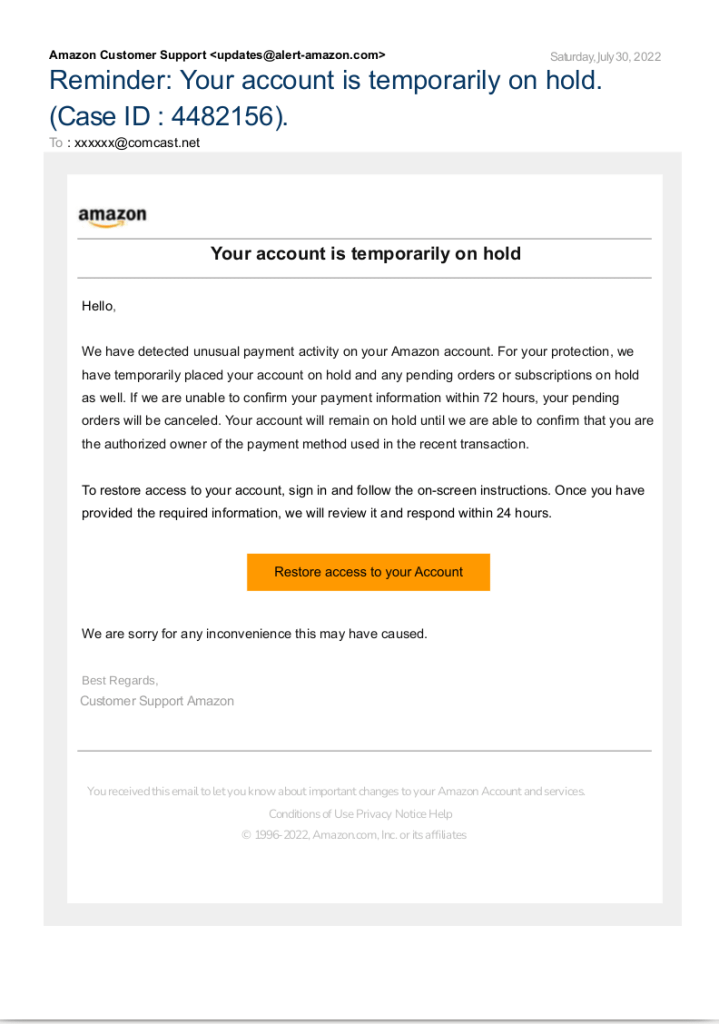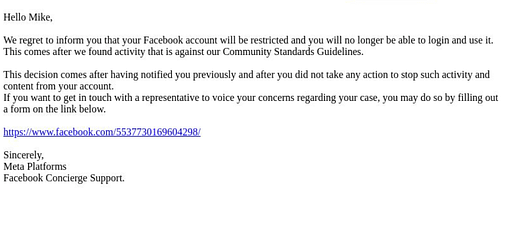Access Restricted/ Credential Farming
-
Home
-
Access Restricted/ Credential FarmingAccess Restricted/ Credential Farming


The email’s content is often a notification that your account has been locked and you need to sign in using the link or button in the same email. Their goal is to get you to log into their website, which looks like the original service provider page. From here they will save your credentials, which they can use to perform any number of malicious activities.


Be skeptical. It’s good practice to visit the website directly rather than clicking any links or buttons on emails. Fraudulent emails are designed to look exactly like the official emails of the companies they are trying to impersonate, so many people fall for them. Here are other tips to avoid becoming a victim of this email scam:
SANGU protects its users from advanced cybersecurity threats! Get your invite to our pre-launch here.